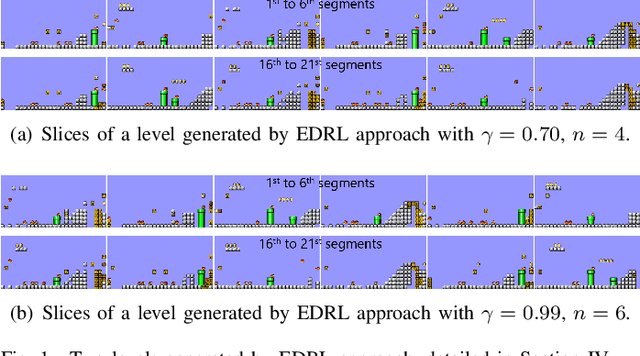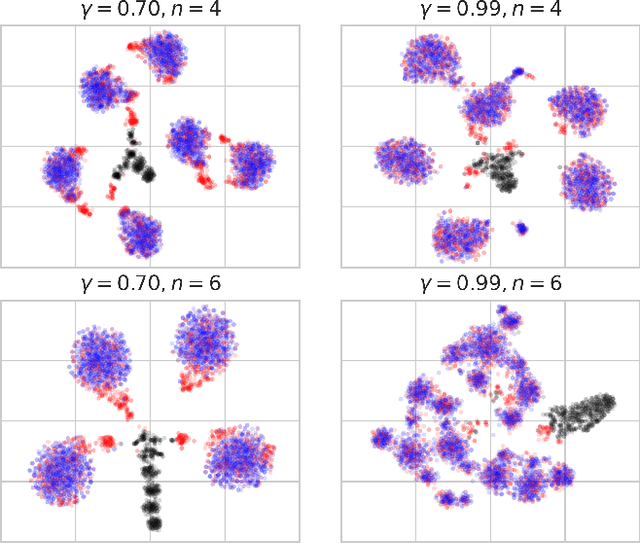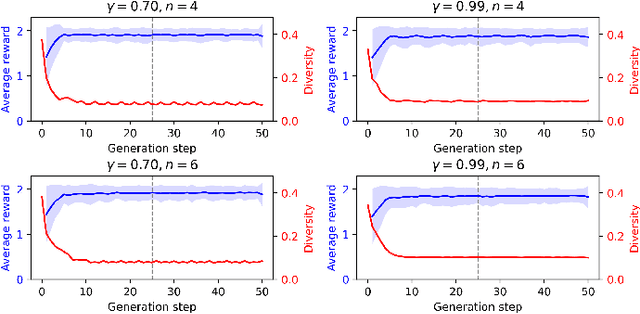State Space Closure: Revisiting Endless Online Level Generation via Reinforcement Learning
Paper and Code
Dec 06, 2022



In this paper we revisit endless online level generation with the recently proposed experience-driven procedural content generation via reinforcement learning (EDRL) framework, from an observation that EDRL tends to generate recurrent patterns. Inspired by this phenomenon, we formulate a notion of state space closure, which means that any state that may appear in an infinite-horizon online generation process can be found in a finite horizon. Through theoretical analysis we find that though state space closure arises a concern about diversity, it makes the EDRL trained on a finite-horizon generalised to the infinite-horizon scenario without deterioration of content quality. Moreover, we verify the quality and diversity of contents generated by EDRL via empirical studies on the widely used Super Mario Bros. benchmark. Experimental results reveal that the current EDRL approach's ability of generating diverse game levels is limited due to the state space closure, whereas it does not suffer from reward deterioration given a horizon longer than the one of training. Concluding our findings and analysis, we argue that future works in generating online diverse and high-quality contents via EDRL should address the issue of diversity on the premise of state space closure which ensures the quality.
 Add to Chrome
Add to Chrome Add to Firefox
Add to Firefox Add to Edge
Add to Edge